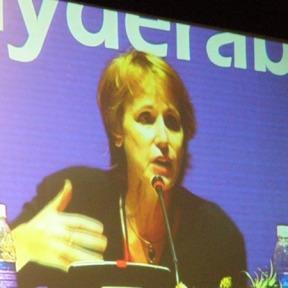
'I found that living in a developed economy is quite different from living in my developing country environment. Things like the Internet are taken for granted...In sub-saharan Africa, lack of the same (Internet) resources would automatically discourage me...' - John Walubengo from Kenya

'It was also very important for me to join other members of the RPWG to be physically present at the IGF, so we could follow the implementation of the RP mechanism, working in partnership with the Secretariat... and providing assistance to the hubs.' - Marilia Maciel from Brazil

'This is not an outside imposition of technology, but an enthusiastic acceptance of support... the ideal situation, where just a push, just a bit of help, can enable the local population to maximise use of resources under their own direction.' - Virginia Paque from Wisconsin, USA

'In most developing countries access to the Internet for people without disabilities is an issue. Thus the thought of access to people with disabilities is rarely considered.' - Emmanuel Edet from Nigeria

Policy-makers and governments in developing nations can implement more effective policies and frameworks by gaining a better understanding of the factors that support stakeholders and partners to extend the benefits of information communication technology (ICT) to rural communities. The aim of this paper is to answer the framework to follow for extending access to ICT benefits in underserved rural areas of a developing country.
Tailor your subscription to your interests, from updates on the dynamic world of digital diplomacy to the latest trends in AI.
Subscribe to more Diplo and Geneva Internet Platform newsletters!
Diplo is a non-profit foundation established by the governments of Malta and Switzerland. Diplo works to increase the role of small and developing states, and to improve global governance and international policy development.
